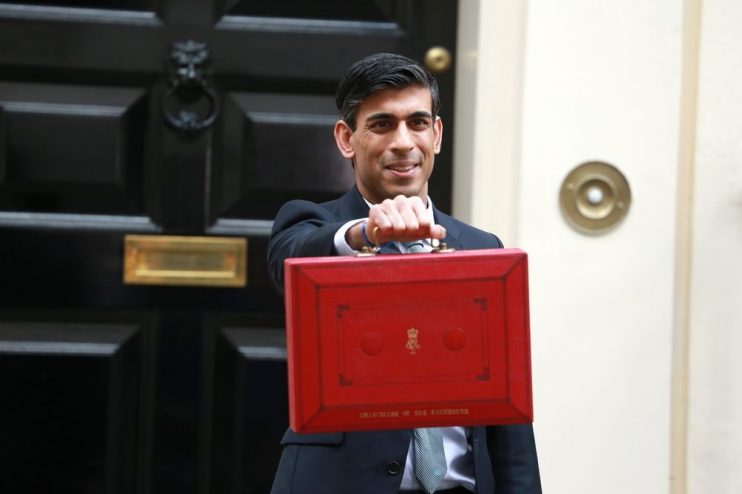After an extremely turbulent year in the business world, the team at Competex awaited the 2021 budget announcement with bated breath. While the last year has proved to us that nothing is certain, Rishi Sunak’s announcement will help many businesses get some clarity on what the future may hold for them in the short to medium term.
Here is a summary of the main points.
Corporation tax set to rise to 25% from April 2023
In the UK, corporation tax is charged at 19%, which is the lowest rate compared with all the G7 countries.
From April 2023, the following changes will take place:
- Small businesses with profits of £50,000 or less will come under the new Small Profits Rate and will continue to be taxed at the current rate of 19%.
- Businesses with profits over £250,000 will be taxed the full rate of 25%.
A tapered rate will apply to businesses with profits between £50,000 and £250,000.
Personal tax bands, rates and personal allowances frozen until 2026
The personal allowance, income tax bands and the higher rate threshold will be frozen at their 2021-22 levels for the following four tax years, as part of the Government’s plan to recover the UK’s finances after the huge cost of the coronavirus pandemic response.
As announced in February by HMRC, the 2021-2022 tax parameters are as follows:
- The Personal Allowance for tax-free income will increase to £12,570 and the Higher Rate Threshold, when higher earners start to pay 40% tax, will increase to £50,270.
- The Marriage Allowance (also known as the Transferable Tax Allowance) will increase to £1,260.
- The Blind Person’s Allowance will increase to £2,520.
- The Married Couple’s Allowance will increase to a maximum of £9,125 (minimum £3,530) with an income limit of £30,400.
- Income tax bands for the UK (excluding Scotland) will be:
- Basic rate: £1 to £37,700
- Higher rate: £37,701 to £150,000
- Additional rate: over £150,000
National insurance (NIC)
The NIC upper limit will remain aligned to the Higher Rate Threshold and therefore will also be frozen at £50,270 (annual) until April 2026.
Limits and thresholds for the 2021-2022 tax period are:
- The weekly Lower Earnings Limit is unchanged at £120 (£6,240 pa).
- The weekly Primary Threshold increases to £184 (£9,568 pa).
- The Secondary Threshold increases to £170 (£8,840 pa).
- The Upper Earnings Limit (UEL), Upper Secondary Threshold for under 21s and Apprentice Upper Secondary Threshold for under 25s increase to £967 a week (£50,270 pa).
This means that salary of up to £8,840 pa can be paid without incurring any NIC (employer or employee).
Capital gains tax (CGT)
Fortunately, the speculated changes to CGT did not materialise. The capital gains threshold of £12,300 pa will be frozen until at least April 2026. We will be monitoring any further announcements that may be made later in the year.
IR35
No mention was made in the budget speech on IR35 and therefore it is assumed that the proposed changes to the Private Sector will be going ahead on 6 April 2021.
Pension lifetime allowance frozen at 2020-2021 level until 2026
The Lifetime Allowance is the maximum amount a person can accrue in a registered pension scheme in a tax-efficient manner over their lifetime. The Chancellor announced that this allowance will be frozen at its 2020-21 level – £1,073,100 – until April 2026.
Lower VAT rate for hospitality firms to be maintained at 5% rate until September 2021
In the latest budget announcement, pubs, restaurants, and other non-essential retail businesses have been given further help in the Budget.
- The temporary 5% reduced rate of VAT is extended until 30 September 2021.
- An interim 12.5% rate will apply for the following six months until 31 March 2022.
The VAT reduction applies to food, non-alcoholic drink, and hotel and holiday accommodation.
Job Retention Scheme (CJRS) extended to the end of September 2021
It was no surprise when the Chancellor announced a further extension to the CJRS, so that it will now close at the end of September 2021. This is an additional five months after the end of April 2021 when it was intended to close.
To be eligible for periods ending on or before 30 April 2021, you must have made a PAYE RTI submission to HMRC between the 20 March 2020 and 30 October 2020.
For periods starting on or after 1 May 2021, you need to have made a PAYE RTI submission to HMRC between 20 March 2020 and 2 March 2021.
- Employees will continue to receive at least 80% of their standard wages for usual hours not worked, with the Government funding the full 80%, and employers only paying the Employer’s National Insurance.
- In July 2021, employers will be required to contribute 10% of the employee’s 80% furlough pay, with the Government paying 70%.
- In August and September 2021, employers will contribute 20% while the Government will fund 60%.
SEISS grant extended to September 2021
The long-awaited details of the fourth SEISS grant were confirmed in the Budget, accompanied by the announcement of a fifth and final grant.
- The fourth SEISS grant will be paid at 80% of three months’ average trading profits, which, as before, will be made in a single instalment and capped at £7,500.
- The grant will cover the period from February 2021 to April 2021, and eligible applicants can make a claim from late April 2021.
- The eligibility for the fourth grant differs in that self-employed individuals must have filed a 2019-20 Self-Assessment tax return by midnight on 2 March 2021 to be eligible. This will mean that over 600,000 individuals may now be newly eligible for SEISS, including many new to self-employment over the course of the tax year 2019-20.
All other eligibility criteria will remain the same as the third grant, with further details being published in due course.
- The Government announced that there will be a fifth and final SEISS grant which will cover the period from May 2021 to September 2021.
- Unlike the previous grants, the value of the grant will be determined by a turnover test, in a bid to ensure that support is targeted at those who need it most.
- Individuals whose turnover has fallen by 30% or more will continue to receive the full grant of 80% of three months’ average trading profits, capped at £7,500.
- Those whose turnover has fallen by less than 30% will receive a reduced grant of 30% of average trading profits, capped at £2,850.
Applications for the fifth and final grant can be made from late July 2021.
Stamp duty holiday extended to June 2021
The stamp duty holiday was introduced to provide help to buyers during the pandemic and to boost the property market.
- The tax has been suspended on the first £500,000 of all sales in England and Northern Ireland since July 2020. The tax break will now continue until the end of June 2021.
- Between July and September 2021, the nil rate band will be set at £250,000 – double its standard level.
- There will be a return to the usual level of £125,000 from 1 October 2021.
Mortgage guarantee to help buyers with 5% deposit
As expected, a new mortgage guarantee scheme will be implemented from April 2021, up until 31 December 2022.
- Will allow individuals to secure a mortgage on homes up to the value of £600,000. with a deposit of just 5%
- Lloyds, NatWest, Santander, Barclays and HSBC will be offering 95% mortgages from April, with other lenders including Virgin Money expected to launch products later.
- Buyers will have the option of fixing their mortgage rate for a minimum of five years.
The scheme is available to both new and existing homeowners.
Loans
The Bounce Back Loan Scheme and Coronavirus Business Interruption Scheme end on 31 March 2021. Replacing these will be the Recovery Loan Scheme. Any business who has been impacted by the pandemic will be able to apply for a loan or overdraft of between £25,000 and £10m, from 6 April 2021 to the end of 2021. These will be backed by a Government guarantee of 80%.
Restart grants for small businesses
Small high street businesses will be offered grants of up to £18,000 by their local authority. This will apply to businesses providing hospitality, accommodation, personal care, and leisure.
Summary
The Budget delivered the start of the long journey towards economic recovery, and as Rishi Sunak stated, “It lays the foundations of our future economy”. We await the published content and announcements on whether there will be an Autumn Budget in 2021, in which further changes will be introduced.

